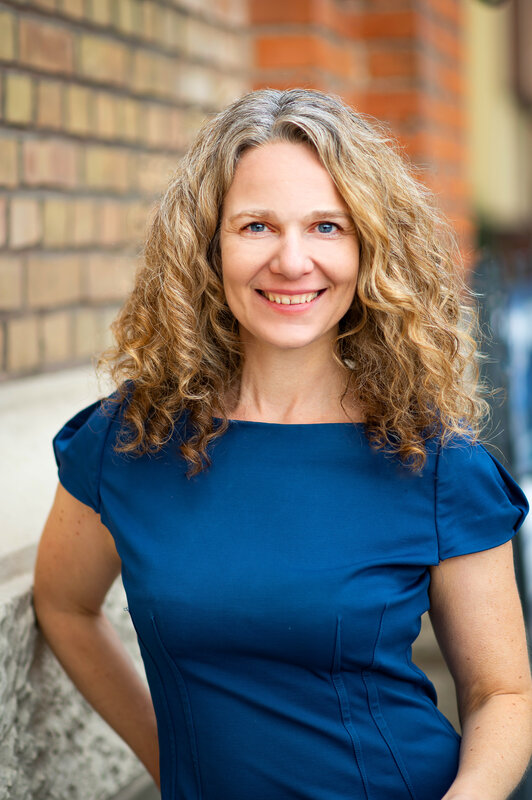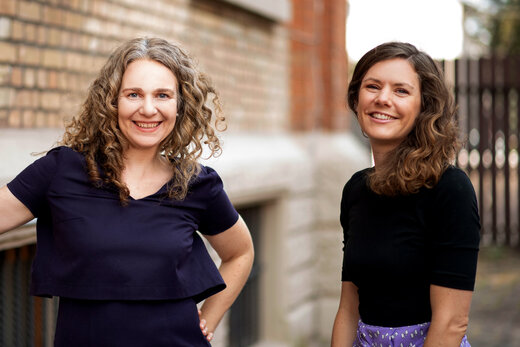“We want to take the stigma out of reproductive health”
Fertility treatments, menopause, men’s health. At German companies, these topics are considered to be somewhat taboo, both for managers and employees. Julia Reichert (Diplom 2004) plans to change that. With her start-up Onuava, Reichert is helping today’s companies better assist their workers during physically and psychologically daunting phases of life. She spoke with us about her transformation from corporate consultant to entrepreneur, how Onuava works, and why reproductive health is a topic so close to her heart.
Julia, how did you come to found Onuava?
The idea was born out of my own experiences. After earning my degree from WHU, I went to work as a consultant at Boston Consulting Group (BCG), first in Frankfurt and later out of their London office. While there, I gave birth to my three children with the help of fertility treatments, and my experiences left a lasting impression on me. I know all too well about this particular subject matter, how it is both emotionally taxing and yet still somewhat invisible. When I moved back to Germany in 2020, I started consciously thinking about what I wanted to do with my life. I had just turned forty and I just knew that, if I didn’t start my own business then, I probably never would. After doing some structured brainstorming, it came to me: I wanted to help people with their fertility planning and also with other health concerns that may occur later in life. In 2022, I founded Onuava with the mission of making reproductive health accessible to all. The next year, my business partner Katharina Jung jumped on board, and she brought with her a lot of experience from the start-up world. Together, we formed our vision: reproductive health care for everyone.
What services does Onuava offer today?
Through Onuava, we want to take the stigma out of reproductive health. Our digital platform, which is easily accessible to a business’s employees, is our crown jewel. It helps users find information concerning a wide range of topics, including fertility, fertility treatments, pregnancy, endometriosis, menopause, or men’s health. User will find live sessions with medical professionals, as well as the option to seek individualized medical guidance from gynecologists, endocrinologists, psychologists, midwives, or nutritionists. The first time we have contact with a company usually comes from us giving a presentation there, for example, as part of a corporate sponsored “health day.”
But something new we have is our corporate insurance for fertility treatments—the first of its kind in Europe. This insurance allows companies to support their workers, even financially, with their fertility planning—anonymously and in a tax-optimized way. We also help companies formulate clear guidelines for fertility- and menopause-related policies, e.g., policy regarding medical leave in the case of a miscarriage or absence from work to attend fertility treatment sessions. Little by little, this will lead to a more open workplace culture surrounding these topics, which are often still considered to be taboo.
How many companies already use Onuava?
We have everything from small and midsized enterprises all the way up to larger DAX-listed companies. Pharmaceutical companies, consultancies, and companies from the financial sector have proven to be particularly active in this regard. This is partially due to the fact that those who have worked abroad are often already aware of such benefits packages that exist in the United States or the United Kingdom. Additionally, these particular sectors have close proximity to the medical field and are also aware of the resources necessary to allow for such benefits. SMEs are starting to show more and more interest. Some companies start with just a presentation; others jump right in and get started with the platform and our offers for medical guidance. And our new insurance solution has given us a whole new reach, as it allows us to offer a structured, long-term benefits package.
You earned your Diplom from WHU in 2004. How did the school influence the founding of your company?
When I was working toward my degree in 2004, entrepreneurship was not so strongly in focus at WHU as it is today. Many of us got into consulting or investment banking after graduation. Still, my time at WHU made an impression on me. For one thing, through its network, which it still maintains today. At almost all companies that I speak with today, I know somebody, either through WHU or BCG. That is a major help when it comes to B2B sales and making initial contact. It was also inspiring to see WHU alumni found successful start-ups. That in turn inspired me, of course, and being in the WHU network means you always have somebody you can turn to when you need advice. The inspiration I found there, the role models I met, the strong network—all of this was invaluable to me, even though the catalyst for me starting my company was my own personal experience.
Let’s take a look into the future: Where do you see Onuava in five to ten years?
We have a clear goal: We want Onuava to become the leading provider of reproductive health benefits in Europe. In other words, we want our insurance model to be well established in Germany while we work on our expansion throughout Europe. We already offer our platform in German, English, French, and Italian, so, tech-wise, we’re ready for a European rollout. For the long term, we want topics like fertility, miscarriages, menopause, and men’s health to be addressed in the workplace the same way mental health or treating back pain would. So many people are affected by these topics. We should talk openly about them. They shouldn’t be stigmatized.
Thank you for the chat, and we wish you all the best for the future.
You can read other “Five Question for…” interviews here.
Photos: FotoAgenten, Heidelberg


